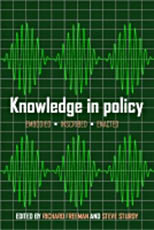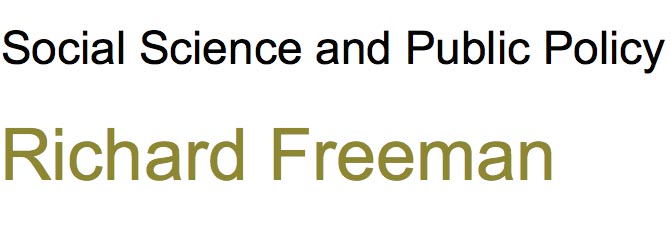 The literature on the role of knowledge in policy making encompasses a striking diversity of views on just what knowledge is, what different types of knowledge there may be and how they are to be observed empirically. In this paper, we propose a new phenomenology of knowledge based not on ‘who knows what, how and why’ but on the form that knowledge takes. Drawing a simple analogy with the three phases of matter – solid, liquid and gas – we argue that knowledge too exists in three phases, which we characterise as embodied, inscribed and enacted. And just as matter may pass from one phase to another, so too knowledge moves and is transformed, through various kinds of action, between phases. We conclude by discussing some of the implications of our perspective for future work, both in research and policy.
The literature on the role of knowledge in policy making encompasses a striking diversity of views on just what knowledge is, what different types of knowledge there may be and how they are to be observed empirically. In this paper, we propose a new phenomenology of knowledge based not on ‘who knows what, how and why’ but on the form that knowledge takes. Drawing a simple analogy with the three phases of matter – solid, liquid and gas – we argue that knowledge too exists in three phases, which we characterise as embodied, inscribed and enacted. And just as matter may pass from one phase to another, so too knowledge moves and is transformed, through various kinds of action, between phases. We conclude by discussing some of the implications of our perspective for future work, both in research and policy.
Source: Bristol: Policy Press
